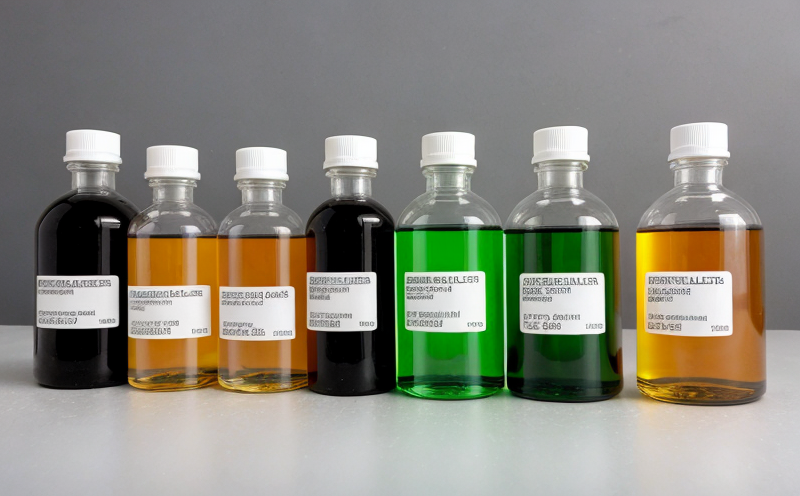ISO 10993-18 General Chemical Characterization Testing
The ISO 10993 series of standards provides a comprehensive framework for ensuring the safety and efficacy of medical devices. The first part, ISO 10993-1, covers general principles for the evaluation of medical devices, while subsequent parts delve into specific methodologies for assessing various aspects of device safety.
One crucial component in this series is ISO 10993-18: General chemical characterization testing. This standard focuses on understanding and characterizing the chemical composition of a medical device to ensure that it does not release harmful substances during its intended use. The primary goal is to identify any potential leachables or extractables from the materials used in the construction of the device, thereby mitigating risks associated with patient exposure.
The process involves detailed analysis using various analytical techniques such as gas chromatography (GC), high-performance liquid chromatography (HPLC), and mass spectrometry (MS). These methods help in identifying low levels of contaminants that might be present on the surface or within the structure of the device. By conducting thorough chemical characterization, manufacturers can demonstrate compliance with regulatory requirements and enhance patient safety.
The importance of this testing cannot be overstated, especially given recent recalls and incidents involving medical devices where adverse reactions were linked to chemical residues. Regulatory bodies like the FDA (US), MHRA (UK), and TGA (Australia) have stringent guidelines regarding the use of specific materials in medical device manufacturing. Compliance with these standards not only ensures legal adherence but also builds trust among healthcare providers and patients.
Given the complexity and importance of ISO 10993-18, it is essential for companies to partner with experienced laboratories that specialize in this area. Our team at [Lab Name] has extensive expertise in performing these tests according to the latest international standards. We employ state-of-the-art equipment and methodologies to provide accurate results consistently.
Our approach begins by thoroughly reviewing your device design documentation, including material lists and process flowcharts. This allows us to tailor our testing strategy specifically for your product, ensuring that all relevant components are analyzed comprehensively. Once the test plan is established, we proceed with sample preparation, which may involve cutting or slicing samples into appropriate sizes depending on their physical properties.
Following extraction using solvents approved by regulatory agencies, we analyze the extracts using advanced analytical instruments capable of detecting even trace amounts of chemicals. Our laboratories are equipped to handle a wide range of materials commonly used in medical devices, from polymers and metals to ceramics and composites. The data obtained during this phase is crucial for assessing whether any substances could pose risks if they migrate into bodily tissues or fluids.
After analyzing the extracted samples, our team interprets the results based on accepted scientific guidelines provided by organizations like ISO 10993-18. If necessary, we recommend additional tests to address particular findings identified during the initial evaluation. Our goal is always to provide clear, actionable recommendations that help you improve your product design and manufacturing processes.
To summarize, ISO 10993-18 general chemical characterization testing plays a vital role in ensuring patient safety by identifying potential hazards early in the development cycle. By partnering with experienced laboratories like ours, you can ensure compliance with regulatory requirements while enhancing trust among stakeholders involved in healthcare delivery.
Applied Standards
The ISO 10993-18 general chemical characterization testing is based on several internationally recognized standards designed to safeguard the integrity and safety of medical devices. These include:
- ISO 10993-18:2018 - General chemical characterization testing.
- ASTM E2338 - Standard guide for general chemical characterization of medical devices.
- EN 16748:2015 - General chemical characterization testing for medical devices.
- IEC 62321-1 - Particulars of the safety of medical electrical equipment—Part 1: General requirements for basic safety and essential performance.
These standards provide a robust framework that ensures consistency across different regions and helps manufacturers meet global regulatory expectations. Our laboratory adheres strictly to these guidelines, ensuring accurate and reliable results every time.
Why Choose This Test
- Compliance with Regulatory Requirements: Ensuring compliance with international standards like ISO 10993-18 is crucial for medical device manufacturers. It demonstrates commitment to quality and patient safety.
- Patient Safety: By identifying potential leachables or extractables, this test helps prevent harmful substances from entering the body during use.
- Risk Mitigation: Early detection of risks allows for corrective actions to be taken before products reach the market, reducing the likelihood of adverse events.
- Reputation Enhancement: Demonstrating adherence to stringent testing protocols can enhance your brand’s reputation and build trust with customers and regulatory bodies.
- Competitive Advantage: Meeting these standards sets you apart from competitors who may not prioritize such thorough evaluations, potentially giving you a competitive edge in the market.
- Cost Efficiency: While initial costs associated with comprehensive testing might seem high, they are often outweighed by potential savings resulting from avoided product recalls and legal issues.
In conclusion, choosing ISO 10993-18 general chemical characterization testing is not just about meeting regulatory requirements; it’s about prioritizing patient safety, enhancing reputation, and ensuring long-term success in the medical device industry.





